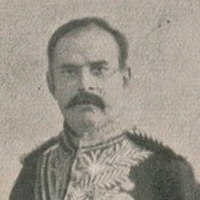Profile of Imdad Imam Asar
Imdad Imam Asar was born on 17 August, 1849, in a prominent family of scholars at Karapar Sarai in Patna district of Bihar. One of his ancestors had been a teacher of Emperor Aurangzeb. His father, Shamsul Ulema Syed Wahiduddin Bahadur had been a registrar, then a magistrate, and finally the chief justice, a position his grandfather had also held during his days. Before getting his education from his father, he had also received his early education from Syed Mohammad Mohsin Benarasi. On completing his formal education, he became a lawyer and later joined Patna College as professor of History and Arabic. He also held the position of Madar-ul-Masaam in the state of Surajpur in Shahjehanpur district of Uttar Pradesh. Asar was a sound scholar of Eastern and Western literatures and literary cultures. In recognition of his scholarship and wide-ranging services, he also received the title of Shams-ul-Ulema, and also of Nawab from the British government. Asar married twice and among his sons, Ali Imam and Ahsan Imam, earned greater prominence than others.
After Altaf Hussain Hali’s Moqaddama-i-Sher-o-Shairi, the book that developed a complete discourse on the principles of literary criticism and became a canonical text is Imdad Imam Asar’s Kaashif-ul-Haqaaiq. This book is also known as Bahaaristaan-e-Sukhan. This is the only book which considers poetry in relation to different knowledge systems like zoology, agriculture, music, and painting. This is how it became a major treatise making use of larger domains of knowledge. Unlike Hali, Asar directly drew upon the Western literatures and discussed literary texts and traditions from a variety of socio-literary cultures with great objectivity. Further, he also classified poetry under various categories and discussed them critically. While developing this comparative perspective, he found a way to examine all forms of Urdu poetry in great detail.
Asar earned his name with the publication of Kaashif-ul-Haqaa’iq. In the first volume of this book, he has discussed the poetry of Egypt, Greece, Italy, and Arabia. While discussing the Arabic poets and poetry, he has also compared Umra-ul-Qais with Meer and Ghalib. In the second volume, he discussed the various forms and genres of Urdu and Persian poetry and also made comparative studies of poets. In addition, he took the Sanskrit poetic tradition into consideration and posited that Urdu poetry would have gained considerably had the Urdu poets paid attention to other literary heritages and developed a catholic perspective. He was of the opinion that epic poetry available even in Arabic and Persian does not compare well with that of the Sanskrit which is of very high standard.
Imdad Imam Asar had the distinction of being a poet, a novelist and a critic. Apart from Kaashif-ul-Haqaaiq, he also authored Mirat-ul-Hukuma, Fasaana-i-Himmat, Kitab-ukl-Asmaar, Kimiyaa-i-Zara’at, Fuwaid-e-Daarain and Diwaan-e-Asar. Asar is the only Urdu scholar to have written books like Kimiya-i-Zaraafat , and others as mentioned above, which covered a vast range of subjects and disciplines including even the flora and fauna. In this respect, Asar enjoys the position of an extraordinary scholar who believed in holistic approach towards life, literature, culture, and scholarship and established himself as a writer of prominence in the pure classical tradition.
Imdad Imam Asar’s poetical works have been compiled and edited by Sarwarul Hoda and the same was published by Ghalib Institute, New Delhi, in 2013. Asar passed away on 17 October, 1934. He lies buried in Manpur Road Abgila in the Gaya district of Bihar.
Authority Control :The Library of Congress Control Number (LCCN) : n83184852

